 The independence referendum has given SNP support a level and fervency that makes them a unique force in British politics, writes James Dennison.
The independence referendum has given SNP support a level and fervency that makes them a unique force in British politics, writes James Dennison.
If a political party were ever lucky enough to find itself in the SNP’s current position in Scotland, but across the entire United Kingdom, it would be heading towards the biggest landslide in British political history. The Nationalists are predicted to win around 45% of the Scottish vote, giving them between 71% and 91% of Scotland’s MPs.
The SNP offer candidates in only 9% of Westminster constituencies yet are currently the British political party most certain of playing a role in the formation of the next government. The party’s current success comes against a backdrop of winning only 6 MPs in 2010, having as little popularity as the widely-loathed Scottish Conservatives as recently as 2013 and, in September of last year, leading a losing referendum campaign that forced a change in party leadership.
However, it is the referendum question that is now benefiting the SNP. The referendum campaign greatly increased support for independence, which is highly correlated with SNP voting in the General Election, as well as further dividing the Scottish party system, which was already split by attitudes towards independence. The closeness of the campaign has not extinguished hope amongst ‘yes’ voting Scots that independence remains a realistic possibility. Indeed, supporters of the SNP have become ever more fervent in their partisanship since September’s referendum.
Figure 1 confirms that the proportion of Scots intending to vote for the SNP in the General Election has closely tracked support for independence throughout the last Parliament. Around 30% of the Scottish electorate intended to vote for the Nationalists in Westminster and for the ‘Yes’ campaign in the referendum throughout 2011, 2012 and 2013. It was only in the run-up to the ultimately failed referendum in 2014 that support for both the SNP in the House of Commons and their raison d’etre of independence soared to the crucial 50% mark.
Indeed, as figure 2 shows, pro-independence voters were almost as united in their support for the SNP in Westminster in 2010, when they won only 20% of the vote, as they are now. The vast majority of pro-independence Scots voted for the SNP in 2010 as they will do in 2015. Though the SNP is attracting a slightly greater proportion of pro-independence voters now compared to five years ago, the party’s two-fold increase in popularity is by and large the result of the remarkable increase in support for independence as a political goal following last year’s campaign.
Given that SNP electoral success largely follows support for independence, we might expect the losing September referendum to deal a major blow to the party’s prospects. However, SNP voters, unlike voters of other parties in Scotland, do not see the independence issue as settled. As Figure 3 shows, SNP voters are highly likely to believe that there will be another independence referendum in the next 10 years. Therefore, the goal of independence, which appears to be the major draw of the nationalists, remains alive to its supporters.
The referendum, besides boosting the major determinant of SNP voting, had a second important effect on the party by increasing the fervency of existing SNP supporters[1]. As SNP support increased we might expect the strength of identity of its average supporter to decrease. However, as figure 4 shows, the independence referendum galvanized an already highly ardent support base to levels unseen anywhere else in the UK. As Scottish independence became a realistic possibility, the, at times divisive, campaign had the effect of galvanizing supporters of the nationalist party, which was seen as synonymous with the ‘yes’ campaign.
The reason for the SNP supporters’ avidness may lay in their personal rather than pragmatic attachment to their party. Indeed, as shown in figure 5, SNP supporters are more likely to see their party as part of their own identity than supporters of any other party in the UK. Of interest is the comparison between the Scottish nationalists and the Welsh nationalists, the latter of whom score low on personal attachment, which therefore is unlikely to be simply the result of nationalism. Instead, it may be that the societally contentious referendum campaign gave pro-independence voters the same personal attachment to their Westminster party as their referendum preference.
To conclude, the SNP is currently in a position unlike any other party in the UK. The key determinant of its popularity, support for Scottish independence, has soared over the last 12 months and has not faded since the surprisingly close referendum in September. If the last 5 years are anything to go by, the SNP’s future popularity is likely to rise and fall with the popularity of independence. Furthermore, those who support the SNP identify far more strongly with the party now following the referendum than backers of other parties because September’s nail-biting campaign only served to reinforce the belief that Scottish independence is a realistic possibility. With neither Labour nor the Conservatives likely to be capable of forming a majority government and given the SNP’s fragmented unionist opponents north of the border, Britain’s first-past-the-post electoral system could allow Nicola Sturgeon’s party to exact a high price for support of a government in the Commons. If the nationalists wish to maintain their current popularity, they will need to ensure that this price is capable of keeping both support for independence and belief in its possibility high.
Notes: This article gives the views of the author, and not the position of the General election blog, nor of the London School of Economics. Please read our comments policy before posting.
[1] Defined as those who ‘most closely identify’ with that party as opposed to others
 James Dennison is a PhD researcher at the European University Institute. He has previously worked at the Houses of Parliament and completed an MSc in Political Science and Political Economy at the LSE.
James Dennison is a PhD researcher at the European University Institute. He has previously worked at the Houses of Parliament and completed an MSc in Political Science and Political Economy at the LSE.


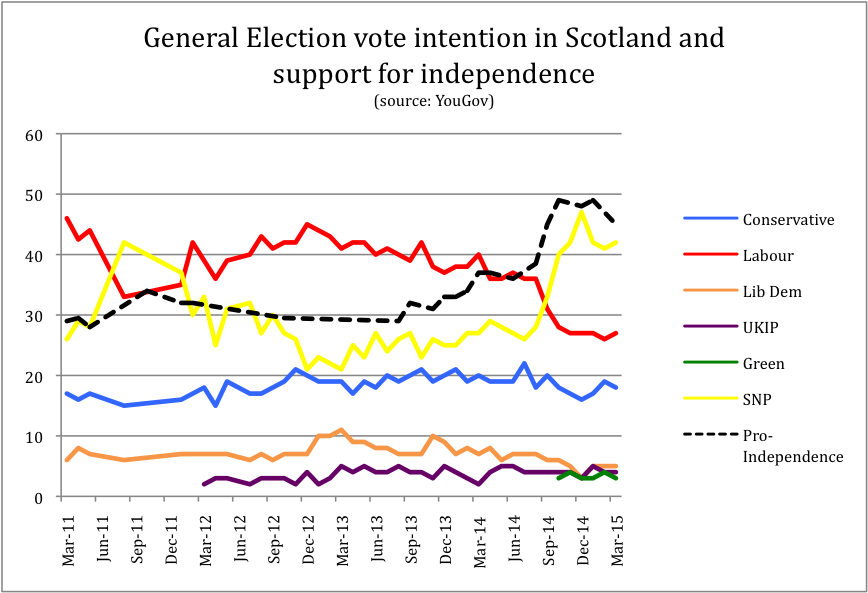
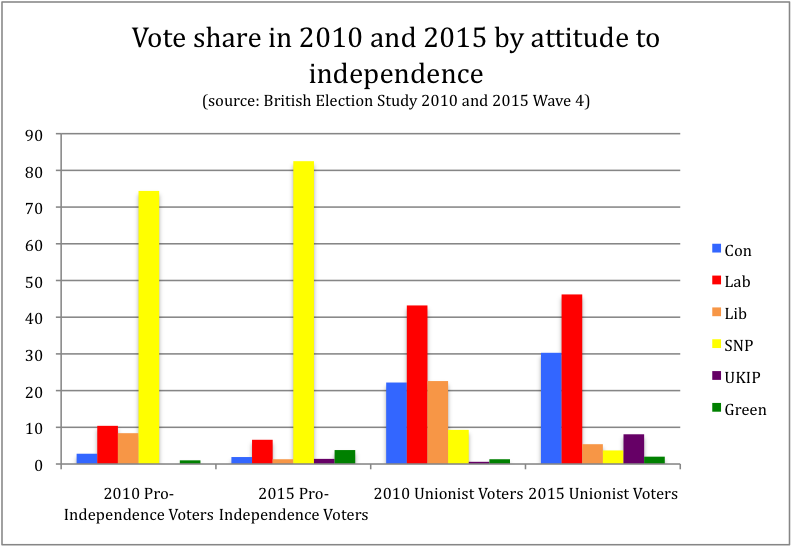
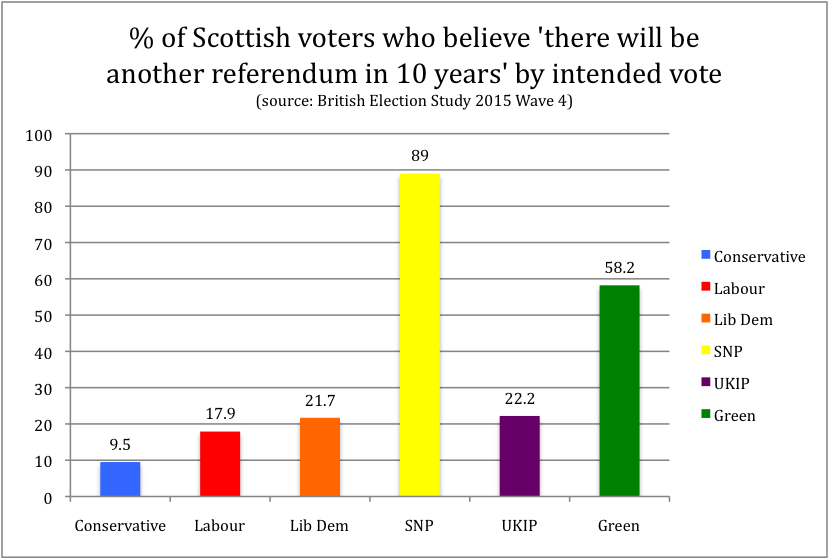
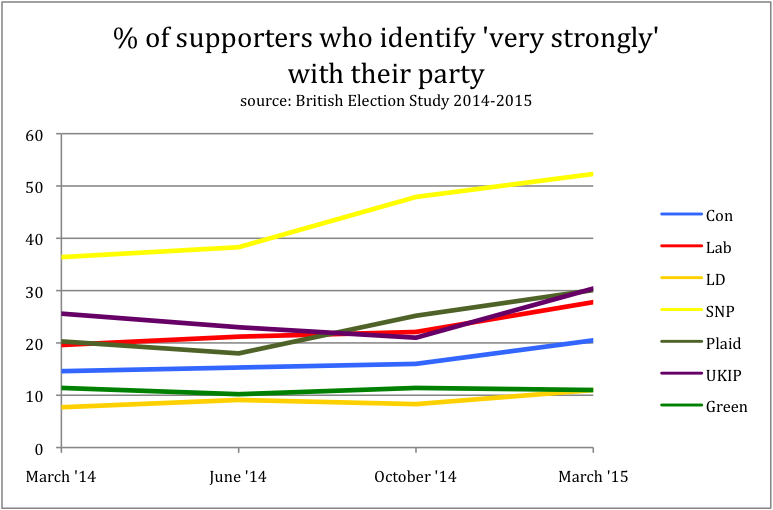
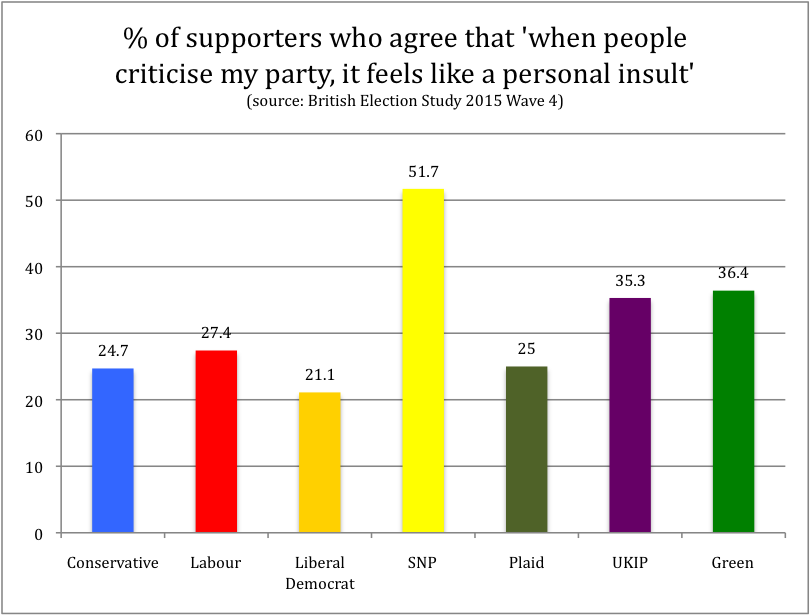



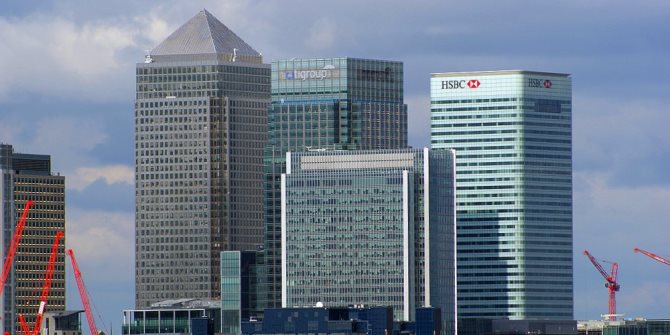
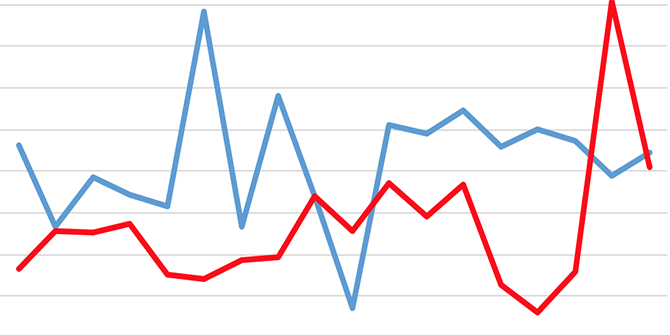

so snp support fluctuates with support for an independent Scotland- wow
Except that the SNP have won the largest number of seats in six of the last seven elections in Scotland (2007/11 Holyrood, 2007/12 Locals and 2009/14 EP) all while support for independence was much lower. When you look at the election studies they didn’t win the Scottish Parliament elections because their supporters were more more motivated or driven by independence.